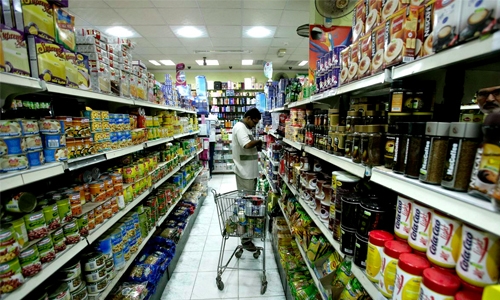VAT likely across GCC states
Muscat : H E Darwish bin Ismail bin Ali al Balushi, Minister Responsible for Financial Affairs has said that value added tax (VAT) was imminent and most likely to be introduced across Gulf states by 2018.
Talking to the media at the Arab Fiscal Forum held in Abu Dhabi on Monday, H E Balushi was quoted as saying that GCC countries have reached an initial agreement to start applying VAT at five per cent by 2018. The minister said that some amendments to the tax could be made till 2018, yet generally the planned rate will be unchanged.
His comments came on the day Cristine Lagarde, managing director, International Monetary Fund (IMF) urged GCC to re-engineer its tax structure.
Earlier in December 2015, Younis al Khouri, Undersecretary in UAE’s Ministry of Finance, was quoted as saying that GCC countries have agreed on key issues regarding the implementation of VAT, but are still in talks about finalising and unifying the process.
“We have agreed to exempt some foods - approximately 94 items. We have also agreed to apply zero rates on healthcare and education sectors,” Khouri had said. “There are one or two sectors that we haven’t agreed upon. We have been looking at different examples and alternatives. Of course, we have agreed on healthcare, education, social services and food products.”
Lagarde, who was at the same forum, said that the fiscal adjustment needs to vary from country to country. “It is also worth remembering that GCC economies have made large fiscal adjustments in the past,” Lagarde said, adding that they can “do it again”. At the same time, she stressed that these economies need to strengthen their fiscal frameworks and re-engineer their tax systems.
She asked the GCC bloc to start the revenue generating efforts by putting in place a simple system that initially focuses on VAT, at a low single-digit rate, and such a tax could go up to two per cent of GDP.
According to Deloitte Middle East (DME), the leading provider of indirect tax advisory services, faced with a need to raise additional government revenues, implementing a VAT would be a rational response by governments (in GCC).
“That is not to say that the implementation of a corporate or personal income tax can be ruled out, rather it is a reflection on the fact that a VAT, all other things being equal, seems to tick more of the boxes than the others,” the company said in a recent study.
Compared to VAT, corporate income tax (CIT) is more likely to act as a disincentive to businesses considering investment in the region and more negatively impact GDP growth. A personal income tax presents an obvious challenge to the “tax-free” branding that has served the region so well in the past.
Yet, introducing VAT does not necessarily mean that a government would not need to introduce any other taxes. In fact, it could be argued that introducing a VAT at this point might very well make it easier and more acceptable for governments to introduce a full suite of taxes in the future, the firm stated.
Related Posts

